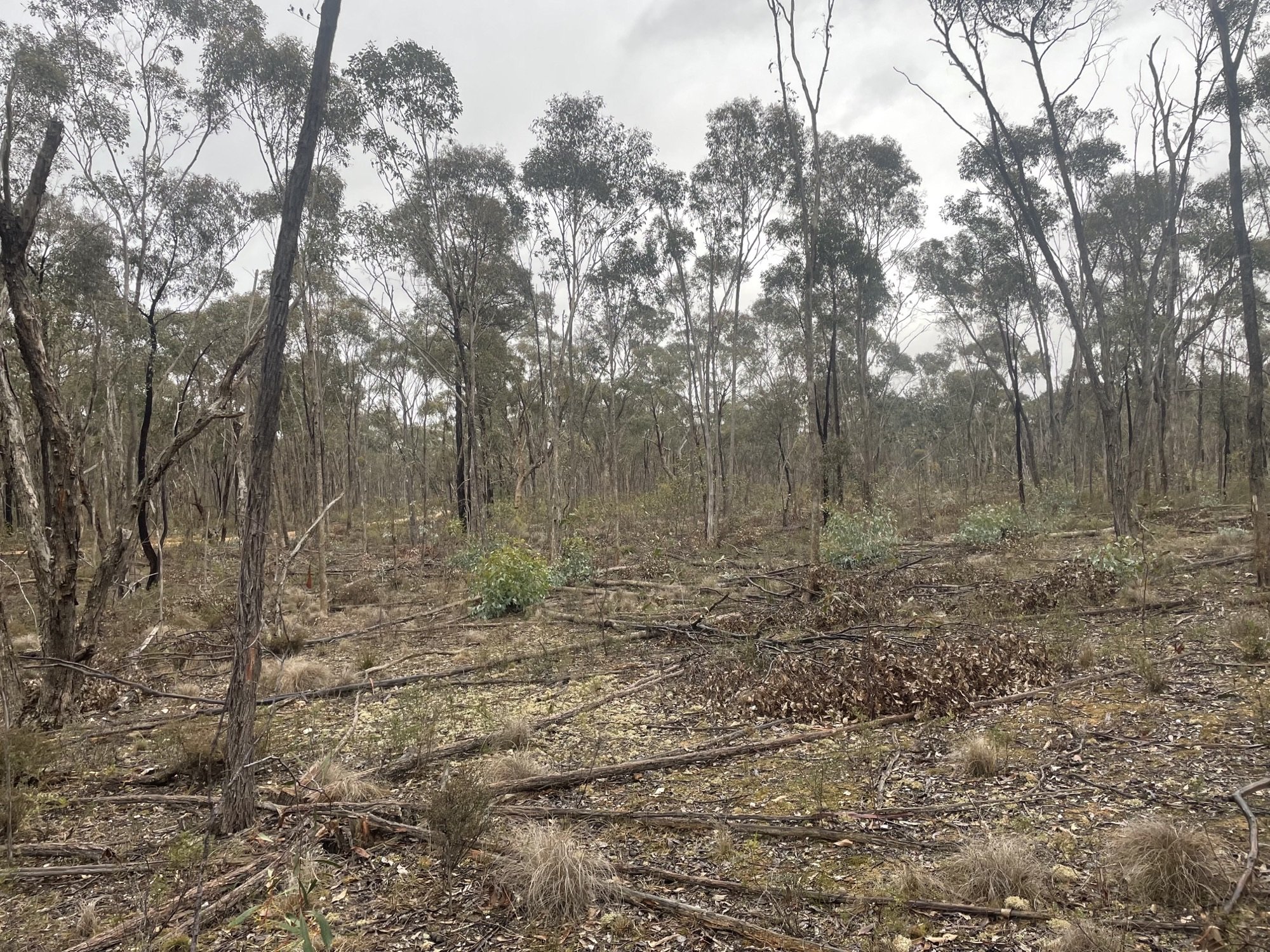Dumawul Cultural Training with DJAARA.
If there is one thing Landcarers can attest to, it is that we are prone to standing in the weather in appreciation of the natural environment, and as the icy rain came down in heavy drops on Tuesday, I was fortunate to be participating in a site visit of DJAARA’s Forest Garden Strategy. The field tour of the Paddy’s Ranges State Park concluded a morning of Cultural Competency Training with Dumawul, hosted at the Maryborough Club, with thanks to DJAARA [the Dja Dja Wurrung Clans Aboriginal Corporation] and the North Central CMA. Dressed the part of the dual-Landcare-citizen - as I’m a proud volunteer of the Buloke and Northern Grampians Landcare Network (NCCMA and Djaara Country), the invitation to attend training with the new lens of a Yarrilinks Landcare professional was graciously accepted, thank you to the Wimmera CMA.
DJAARA’s Cultural Competency Training is a program of professional training that familiarises participants with the cultural heritage of Dja-Dja Wurrung country and the Djaara people, and DJAARA as an organization in their movement to heal Country and Culture through land management services and cultural immersion experiences, including bush food.
Dumanwal facilitator and Djaara woman, Auntie Kerry, invited participants into discussion about working together from a place of cultural awareness and safety - noting the long withstanding impacts of colonization on Aboriginal Australians, not in blame, but for aligning our shared goals and values for sensitive collaboration. The session was both engaging and informative, highlighting poignantly the importance of reemerging Aboriginal language, and touching on cultural protocols of the Djaara people and the ways in which DJAARA are leading cultural management of landscapes across the Loddon Mallee.
We enjoyed lunch curtesy of the venue, before leaving the classroom for an immersive experience on site. Dumanwul facilitator and Djaara woman, Auntie Vicky, graciously Welcomed the group to Country with a Smoking Ceremony within the damp box ironbark forest, before we were led to explore the forest gardening activities that DJAARA have been trialing.
Understanding the operations of the site and the practice of environmental thinning by Djaara.
The Forest Garden Strategy is a twelve-year strategy developed in 2022, as a program of remediation to heal Country that has been affected by a history of mining and agriculture. Amongst the goals of the strategy, DJAARA aim to significantly contribute to the management of cultural landscapes where Country is overgrown, or the soil composition has been lost to mining repercussions, namely “upside down country”. The Paddy’s Ranges State Park site is one of many sites where DJAARA in partnerships with Parks Victoria and landholders are exploring culture informed management practices, such as environmental thinning. DJAARA have removed the coppiced growth of established eucalyptus species at the site to allow for a thinning of the forest canopy. This in turn promotes more sunlight to the forest floor for the growth of understory species, with the cut branches left to decompose for soil nutrition over time [photos below]. Concerns over this practice increasing the immediate fire risk of the site have been addressed in the long-term fire management strategies of DJAARA. With the substantial loss of old growth across the region’s woodlands, DJAARA are even exploring methods to assist established trees in forming hollows for wildlife habitat while the Country works at healing.
Dja Dja Wurrung Country extends from the Bendigo region across to Donald in the West, Boort in the North, and Creswick towards the South. Here in the Wimmera, we acknowledge the Traditional Custodians as the Barenji Gadjin Land Council (BGLC), which includes the Wotjobaluk, Jaadwa, Jadawadjali, Wergaia and Jupagalk people, and covers the area as far North as Ouyen, across to the South Australian state border and down to Ararat in the South, exclusive of the Grampians region. Yarrilinks Landcare are committed to working alongside the BGLC, seeking their contributions in Landcare projects on public land.
This is the second Dumawul Cultural Training I have undertaken, which offered new insights, and highlighted the importance of understanding Aboriginal culture and history as we work towards healing Country, the position of the Traditional Custodians of the land in leading this work, and the role of Landcare in helping.
We acknowledge the Wotjobaluk, Jaadwa, Jadawadjali, Wergaia and Jupagalk people as the first inhabitants and the Traditional Custodians of the land where we live, learn, and work, in the Wimmera. We acknowledge the Traditional Custodians of the Country we use and pay our respects to their connection to all Country as we learn to work together for the betterment of all Country and all people.






